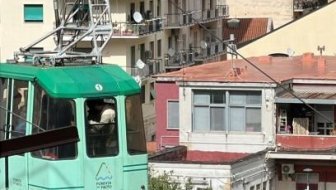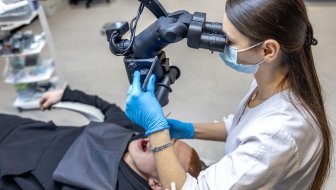The brisk trading in shares of the Croatian oil company INA that started on the Zagreb Stock Exchange on Tuesday, continued on Wednesday, generating around HRK 74 million in turnover in the first two hours. INA shares were sold at a price of HRK 2,830 and 26,128 shares changed hands.
The shares are believed to have been bought by pension insurance funds at the urging of the Croatian government. Officials at pension funds would not comment on whether the funds were purchasing INA shares on the stock market at the said price.
First official information will apparently be available on Thursday, when the Central Clearing and Depository Company will make public changes in INA's ownership shares.
"As you already know, the investment strategy of pension funds is a business secret. Pension funds inform their members in detail about the state of their portfolio through quarterly reports which, among other things, contain a detailed investment position of every fund. We conclude from the recent developments that the Shareholders Agreement between the government and (the Hungarian oil and gas group) MOL is in a way no longer in force and that it has awakened the interest of investors and affected the value of INA shares whose price has gone up," said Petar Vlaic, management board chair of the Erste Plavi compulsory pension insurance fund.
Ante Babic, director of the Centre for International Development, said there was no justification for the possible purchase of INA shares by pension funds.
"The state lost control over INA seven years ago. Now it is trying to regain that control, and meanwhile INA, once the second or third leading company in the region, has dropped to 10th or 11th place. Regaining control over INA requires too much money and effort and I don't believe it pays for anyone," Babic said.
He added that the state did not have the money to regain control of INA.
"If MOL wants to pay out the small shareholders, I think it is good news. If, on the other hand, pension funds or a domestic company are buying INA's shares, they are doing it with domestic money which is scarce and which could be put to much better use than trying to stick Croatian flags on companies," Babic said.
Croatia will soon be in the European Union, and on that market INA will be a small to medium company.
"INA will have to adapt to the EU market, and who will finance that? If the company is foreign-owned, its adaptation is not the state's concern. Finally, the state cannot increase its managing rights to exceed those that it already has in INA," Babic said, adding that capital should not be discriminated against on the grounds of its origin.
"Shall we classify capital according to its origin and say, for example, that Hungarian capital is bad and German is good?" he wondered.
He added that even if the government's stake in INA was reduced to up to 25 percent, the agreement between the government and MOL gave the government great managing rights, just as those held by MOL, which he said did not have a majority stake in INA.
"Even if one day MOL sells INA, the existing agreement with the government will stay in force," he concluded.
MOL announced at a press conference on December 2 it wanted to purchase 8.009 percent of shares in INA held by institutional and private investors. After the announcement, the Croatian Financial Services Supervisory Agency (HANFA) ordered suspension of trading in INA shares until the public was informed about the details of the offer.
Trading in INA shares resumed on Tuesday after HANFA gave its approval on Monday. The price at the start of trading was 2,830 kuna per share, which was 65.40 per cent higher than on December 2 and 30 kuna higher than MOL's offer. Over 65,500 INA shares changed hands yesterday, generating a turnover of 185.4 million kuna.
MOL currently holds 47.155 percent of INA's stock, the Croatian government holds a 44.836 percent stake, and institutional and private investors hold 8.009 percent of the equity.




































